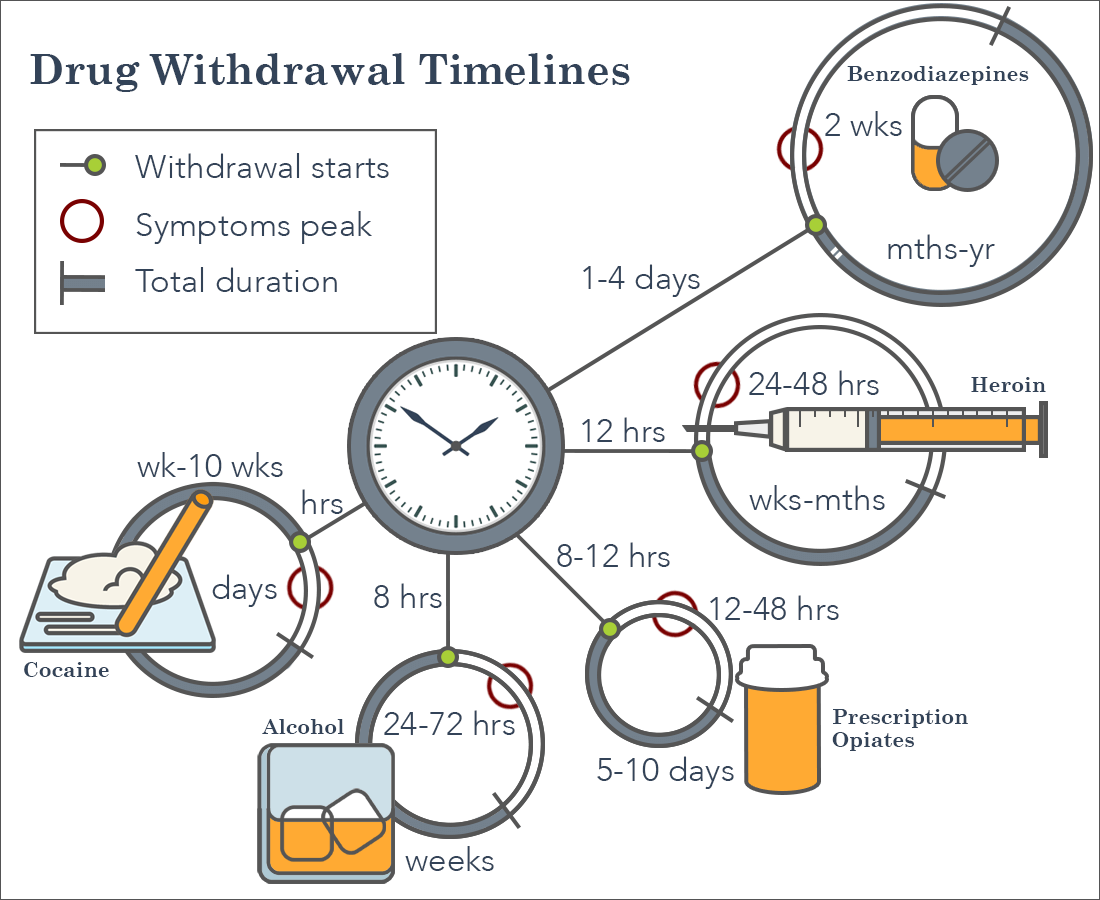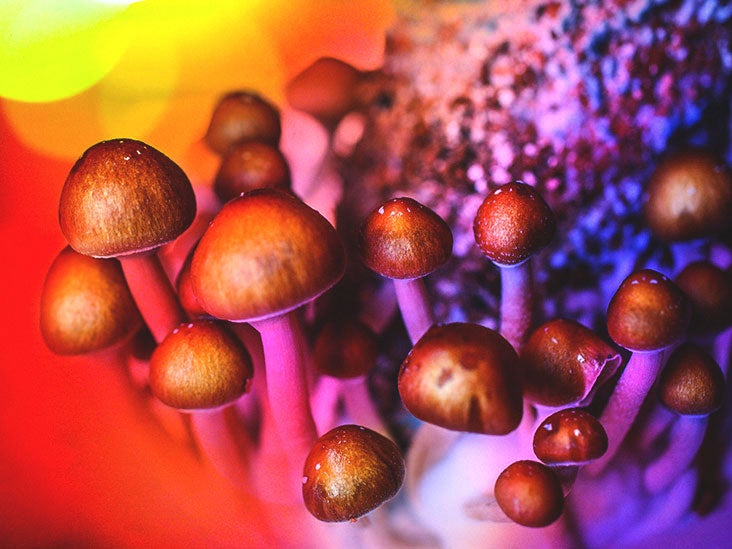If you are utilizing drugs to fill a void in your life, you're more at risk of crossing the line from casual substance abuse to substance abuse and addiction. To preserve a healthy balance in your life, you need to have positive experiences and feel good about your life with no drug usage.
A strong desire to suit to the group can make it seem like doing the drugs with them is the only alternative. as your Continue reading drug use gradually increases gradually. Smoking a joint with buddies over the weekend, or taking ecstasy at a rave, or pain relievers when your back pains, for instance, can alter from using drugs a couple of days a week to using them every day.
you might miss out on or often be late for work or school, your task performance might gradually weaken, and you may start to neglect social or family obligations. Your ability to stop utilizing is ultimately jeopardized. What started as a voluntary choice has actually turned into a physical and psychological need. your life, stopping social and intellectual advancement.
While each drug produces different physical impacts, all abused substances share one thing in common: repeated usage can change the method the brain operates. This includes commonly abused prescription medications as well as recreational drugs. Taking the drug causes a rush of the hormonal agent dopamine in your brain, which sets off sensations of pleasure.
When you become addicted, the compound handles the very same significance as other survival habits, such as eating and drinking. Modifications in your brain disrupt your ability to think clearly, workout profundity, control your behavior, and feel typical without drugs. No matter which drug you're addicted to, the uncontrollable craving to use grows more vital than anything else, consisting of family, good friends, profession, and even your own health and happiness.
You may significantly undervalue the amount of drugs you're taking, just how much it affects your life, and the level of control you have over your substance abuse. With the ideal treatment and support, you can combat the disruptive effects of substance abuse and restore control of your life. The first challenge is to recognize and confess you have an issue, or listen to enjoyed ones who are frequently much better able to see the unfavorable impacts substance abuse is having on your life.
If you recognize yourself in the following signs and symptoms, talk with somebody about your drug usage. at school, work, or home (e. g. failing classes, avoiding work, disregarding your children)., such as driving while on drugs, using unclean needles, or having unprotected sex. such as arrests for disorderly conduct, driving under the impact, or stealing to support a drug habit.
Examine This Report about What Does The Bible Say About Drug Addiction And Marriage
You need to utilize more of the drug to experience the very same impacts you utilized to achieve with smaller sized amounts. If you go too long without drugs, you experience signs such as queasiness, uneasyness, sleeping disorders, depression, sweating, shaking, and stress and anxiety. how to get over drug addiction. You often do drugs or use more than you prepared, even though you told yourself you would not.
You invest a great deal of time utilizing and thinking of drugs, determining how to get them, or recovering from the drug's effects. such as hobbies, sports, and mingling, because of your substance abuse. It's triggering significant problems in your lifeblackouts, financial problems, infections, mood swings, depression, paranoiabut you use anyhow.

If you're worried that a good friend or enjoyed one might be abusing drugs, try to find the following indication: Bloodshot eyes, pupils bigger or smaller than usualChanges in appetite or sleep patternsSudden weight loss or weight gainDeterioration of physical appearance, individual grooming habitsUnusual smells on breath, body, or clothingTremors, slurred speech, or impaired coordinationDrop in attendance and performance at work or schoolUnexplained monetary problems; loaning or stealingEngaging in deceptive or suspicious behaviorsSudden change in good friends, preferred hangouts, and hobbiesFrequently getting into problem (fights, mishaps, illegal activities) Inexplicable modification in personality or attitudeSudden mood swings, irritability, or upset outburstsPeriods of uncommon hyperactivity, agitation, or giddinessLack of motivation; appears sluggish or "spaced out" Appears afraid, distressed, or paranoid Glassy, red eyes; loud talking, unsuitable laughter followed by drowsiness; loss of interest, inspiration; weight gain or loss.
Watery eyes; impaired vision, memory and thought; secretions from the nose or rashes around the nose and mouth; headaches and nausea; look of intoxication; drowsiness; poor muscle control; changes in appetite; anxiety; irritation; lots of cans/aerosols in the trash. Dilated pupils; bizarre and irrational behavior consisting of fear, hostility, hallucinations; https://5fd17c7a4ab9e.site123.me/#section-6049941221d0a state of mind swings; detachment from people; absorption with self or other items, slurred speech; confusion.
Over the last few years, prescription substance abuse has ended up being an intensifying issue, many commonly involving opioid painkillers, anti-anxiety medications, sedatives, and stimulants. Lots of people start taking these drugs to deal with a specific medical problemtaking pain relievers following injury or surgery, for example. However, in time, increased dosages are needed to attain the exact same level of discomfort relief and some users can become physically reliant, experiencing withdrawal signs if they try to stop.
In other cases, people start abusing medication not prescribed for them in order to experience a high, relieve stress, increase awareness, or enhance concentration. To avoid developing issues with a prescription medication, it is necessary to take it only as directed, utilize the most affordable dose for the quickest period possible, and to speak with your physician about other approaches of dealing with the issue.
Sagging eyes, constricted pupils even in dim light, sudden itching or flushing, slurred speech; drowsiness, lack of energy; inability to concentrate, absence of inspiration, decline in performance at work or school; overlooking relationships and social activities. Contracted pupils; drunk-like, slurred speech, difficulty focusing, clumsiness; bad judgment, drowsiness, slowed breathing. Dilated students, reduced appetite; agitation, stress and anxiety, irregular heart beat, high body temperature; sleeping disorders, fear.
Who Drug Addiction Definition - The Facts
The earlier addiction is treated, the much better. Don't wait for your loved one to strike rock bottom! List particular examples of your liked one's behavior that have you worried and urge them to seek assistance. Stay safe. Do not put yourself in harmful circumstances. Don't get so captured up in another person's drug problem that you disregard your own requirements.
You can support an individual with a compound abuse problem and encourage treatment, but you can't force an addict to change. You can't control your enjoyed one's choices. Letting the individual Additional info accept duty for their actions is a necessary step along the method to healing. Try to threaten, penalize, allurement, or preach.

Cover up or make reasons for the drug abuser, or protect them from the effects of their substance abuse. Take over the drug abuser's obligations, diminishing their sense of self-worth. Hide or toss out drugs. Argue with the person when they are high. Usage drugs with the person. Feel guilty or responsible for a drug abuser's behavior.
It's essential to remain calm when challenging your teenager, and to just do so when everybody is sober. Explain your issues and make it clear that your issue comes from a place of love. It is very important that your teen feels you are encouraging. As with adults, teenage substance abuse isn't limited to prohibited drugs.